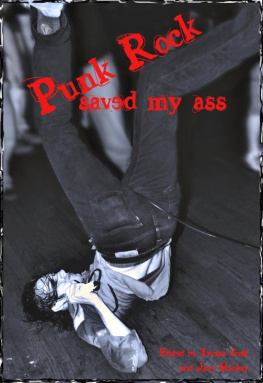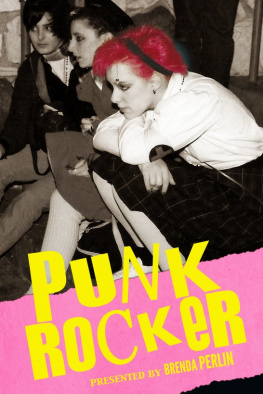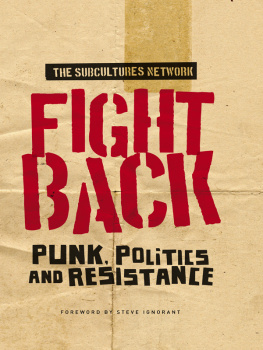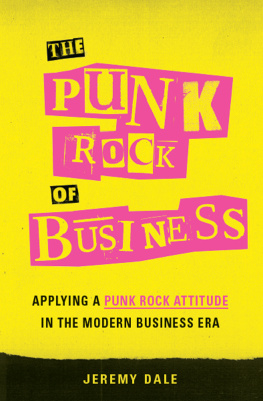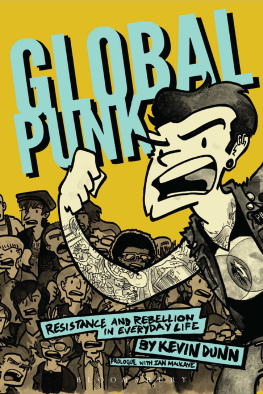Punk Rock and the Politics of Place
This book is an ethnographic investigation of punk subculture as well as a treatise on the importance of place: a location with both physical form and cultural meaning. Rather than examining punk as a sound or a style as many previous works have done, it investigates the places that the subculture occupies and the cultural practices tied to those spaces. Since social groups need spaces of their own to practice their way of life, this work relates punk values and practices to the forms of their built environments. As not all social groups have an equal ability to secure their own spaces, the book also explores the strategies punks use to maintain space and what happens when they fail to do so.
Jeffrey S. Debies-Carl is Assistant Professor of Sociology at the University of New Haven.
Routledge Advances in Sociology
For a full list of titles in this series, please visit www.routledge.com.
Consuming Families
Buying, Making, Producing Family Life in the 21st Century
Jo Lindsay and JaneMaree Maher
Migrant Marginality
A Transnational Perspective
Edited by Philip Kretsedemas, Jorge Capetillo-Ponce and Glenn Jacobs
Changing Gay Male Identities
Andrew Cooper
Perspectives on Genetic Discrimination
Thomas Lemke
Social Sustainability
A Multilevel Approach to Social Inclusion
Edited by Veronica Dujon, Jesse Dillard, and Eileen M. Brennan
Capitalism
A Companion to Marxs Economy Critique
Johan Forns
Understanding European Movements
New Social Movements, Global Justice Struggles, Anti-Austerity Protest
Edited by Cristina Flesher Fominaya and Laurence Cox
Applying Ibn Khaldn
The Recovery of a Lost Tradition in Sociology
Syed Farid Alatas
Children in Crisis
Ethnographic Studies in International Contexts
Edited by Manata Hashemi and Martn Snchez-Jankowski
The Digital Divide
The internet and social inequality in international perspective
Edited by Massimo Ragnedda and Glenn W. Muschert
Emotion and Social Structures
The Affective Foundations of Social Order
Christian von Scheve
Social Capital and Its Institutional Contingency
A Study of the United States, China and Taiwan
Edited by Nan Lin, Yang-chih Fu and Chih-jou Jay Chen
The Longings and Limits of Global Citizenship Education
The Moral Pedagogy of Schooling in a Cosmopolitan Age
Jeffrey S. Dill
Irish Insanity 18002000
Damien Brennan
Cities of Culture
A Global Perspective
Deborah Stevenson
Racism, Governance, and Public Policy
Beyond Human Rights
Katy Sian, Ian Law and S. Sayyid
Understanding Aging and Diversity
Theories and Concepts
Patricia Kolb
Hybrid Media Culture
Sensing Place in a World of Flows
Edited by Simon Lindgren
Centers and Peripheries in Knowledge Production
Leandro Rodriguez Medina
Revisiting Institutionalism in Sociology
Putting the Institution Back in Institutional Analysis
Seth Abrutyn
National Policy-Making
Domestication of Global Trends
Pertti Alasuutari and Ali Qadir
The Meanings of Europe
Changes and Exchanges of a Contested Concept
Edited by Claudia Wiesner and Meike Schmidt-Gleim
Between Islam and the American Dream
An Immigrant Muslim Community in Post-9/11 America
Yuting Wang
Call Centers and the Global Division of Labor
A Political Economy of Post-Industrial Employment and Union Organizing
Andrew J.R. Stevens
Academic Capitalism
Universities in the Global Struggle for Excellence
Richard Mnch
Deconstructing Flexicurity and Developing Alternative Approaches
Towards New Concepts and Approaches for Employment and Social Policy
Edited by Maarten Keune and Amparo Serrano
From Corporate to Social Media
Critical Perspectives on Corporate Social Responsibility in Media and Communication Industries
Marisol Sandoval
Vision and Society
Towards a Sociology and Anthropology from Art
John Clammer
The Rise of Critical Animal Studies
From the Margins to the Centre
Nik Taylor and Richard Twine
Atoms, Bytes and Genes
Public Resistance and Techno-Scientific Responses
Martin W. Bauer
Punk Rock and the Politics of Place
Building a Better Tomorrow
Jeffrey S. Debies-Carl
First published 2014
by Routledge
711 Third Avenue, New York, NY 10017
and by Routledge
2 Park Square, Milton Park, Abingdon, Oxon OX14 4RN
Routledge is an imprint of the Taylor & Francis Group, an informa business
2014 Taylor & Francis
The right of Jeffrey S. Debies-Carl to be identified as author of this work has been asserted in accordance with sections 77 and 78 of the Copyright, Designs and Patents Act 1988.
All rights reserved. No part of this book may be reprinted or reproduced or utilised in any form or by any electronic, mechanical, or other means, now known or hereafter invented, including photocopying and recording, or in any information storage or retrieval system, without permission in writing from the publishers.
Trademark Notice: Product or corporate names may be trademarks or registered trademarks, and are used only for identification and explanation without intent to infringe.
Library of Congress Cataloging-in-Publication Data
Debies-Carl, Jeffrey S.
Punk rock and the politics of place: building a better tomorrow / by Jeffrey S. Debies-Carl.
pages cm. (Routledge advances in sociology; 127)
Includes bibliographical references and index.
1. Subculture. 2. Cultural geography. 3. Punk cultureUnited States. 4. Group identity. 5. Place attachment. 6. Spatial behavior. I. Title.
HM646.D43 2014
306'.1dc23
2014000956
ISBN13: 978-0-415-84042-2 (hbk)
ISBN13: 978-0-203-76713-9 (ebk)
Typeset in Sabon
by IBT Global.
Many people, directly or indirectly, have been instrumental to the successful completion of this book. First, I would like to thank everyone who generously gave of their time to talk to me about punk. The insight they granted me regarding their personal lives and experiences has been invaluable. Without their contributions, this project simply would not have been possible. I cannot expect that these participants will agree with everything I have written or with all of the conclusions I have drawn, but I hope they will feel that I have honored their perspectives and made evident my deep appreciation of their contributions.
I would like to extend further gratitude to those who, indirectly, have contributed to this study by making available the many sources and places that were the subjects of the study: the zinesters, bands, venue operators, bloggers, and punk music enthusiasts who ensure that punk remains a vibrant, relevant, and very much a living movement despite the periodic claims we hear to the contrary. Without these individuals and their creations, there would be no punk subculture. Where possible, I have credited these sources in the following pages.


